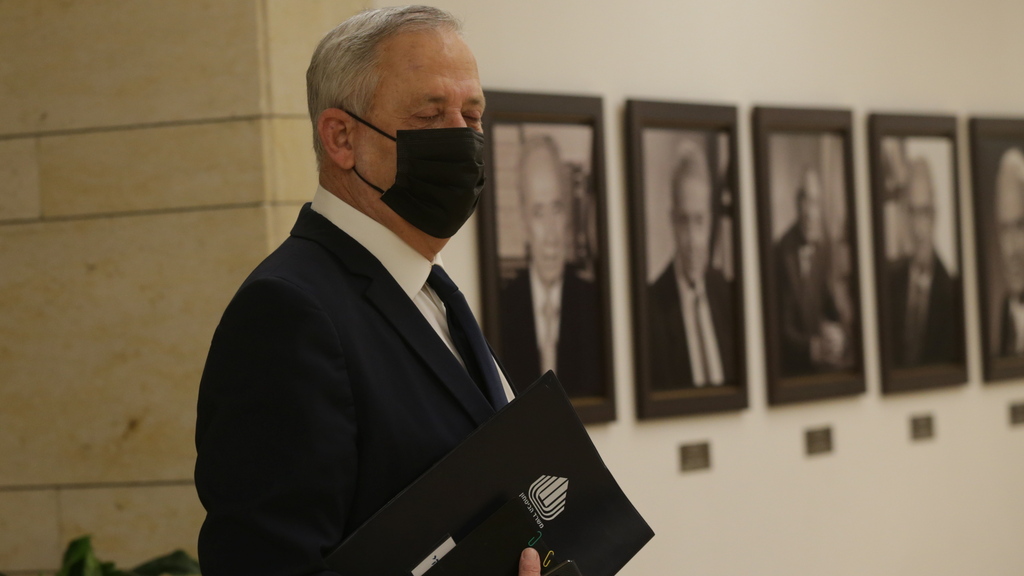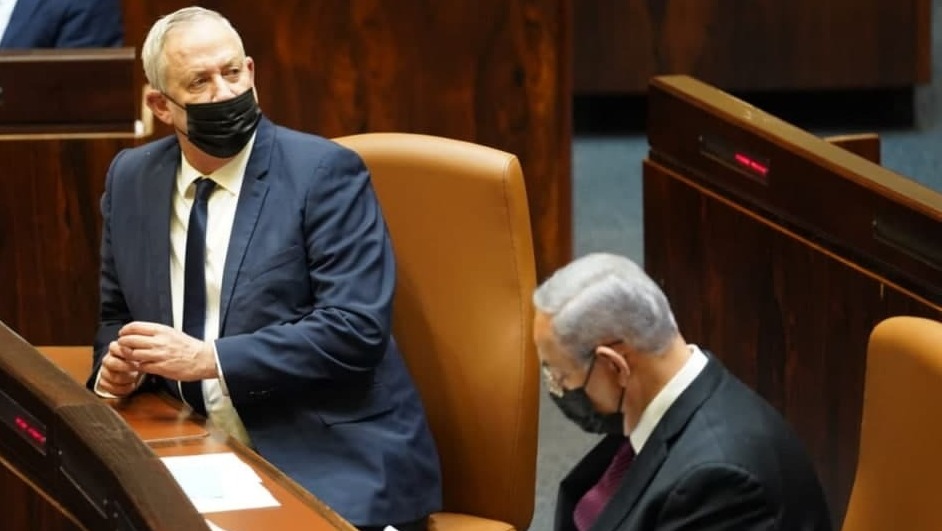Knesset House Committee will convene Monday to discuss a bill to dissolve the Knesset, whose passage in a preliminary vote Wednesday set Israel on track to hold its fourth elections in less than two years.
The vote, sponsored by opposition leader Yair Lapid and backed by coalition party Blue & White, passed by 61 votes to 51 as a row over the formulation of the state budget threatened to bring down the government.
Once the bill is deliberated and revised by the House committee, it is sent back to the Knesset plenum for its first full vote. If it passes that vote - it then goes back to the House Committee for further revision ahead of its second and final vote.
The process is expected to take between several days and several weeks.
Defense Minister Benny Gantz, whose Blue & White part has been at odds with Prime Minister Benjamin Netanyahu's Likud since the two leaders agreed to sit in a coalition government together in April.
The unity government has sparred over the structure of the state budget with Netanyahu and his right-wing coalition partners willing to vote only on a very short term version of the 2020 budget, contrary to the coalition agreement that calls for a two-year budget that includes 2021.
3 View gallery


Blue & White Chairman Benny Gantz arriving at the Knesset for Wednesday's vote
(Photo: Alex Kolomoisky)
If the long-term budget is passed, Netanyahu would no longer have the 2021 budget as a trump card and would be forced to commit to the rotation agreement that would mean Gantz taking over as prime minister next year.
But if the government collapses because a budget has not been passed, Netanyahu would remain as prime minister throughout the three-month election campaign and until a new coalition is formed.
Speaking shortly before entering the Knesset plenum for the vote, Gantz made sure to leave a lifeline for Netanyahu to avoid elections, saying "If Netanyahu approves the budget, everything will work out."
"Anything that prevents elections is a welcome thing. The best solution is for this budget to be passed and for this government to continue to function."
Members of MK Mansour Abbas' Ra'am party, recently allied with the prime minister on various shared interests, skipped the vote. Ra'am is part of the Joint List political alliance, which is currently in opposition. The remainder of the Joint List faction voted in favor of dissolving parliament and Abbas was facing internal disciplinary measures for Ra'am's absence from the vote.



